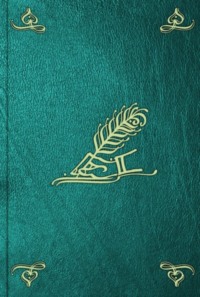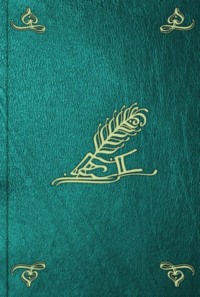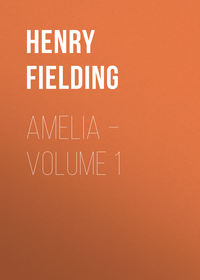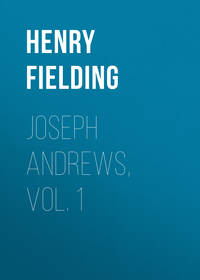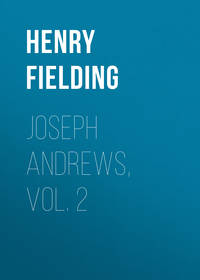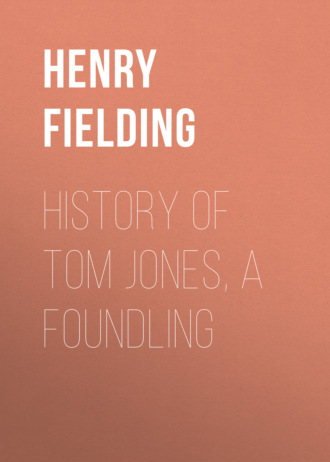 полная версия
полная версияHistory of Tom Jones, a Foundling
Now, as we would by no means fix the odious character of suspicion on Sophia, we are almost afraid to open to our reader the conceits which filled her mind concerning Mrs Fitzpatrick; of whom she certainly entertained at present some doubts; which, as they are very apt to enter into the bosoms of the worst of people, we think proper not to mention more plainly till we have first suggested a word or two to our reader touching suspicion in general.
Of this there have always appeared to me to be two degrees. The first of these I chuse to derive from the heart, as the extreme velocity of its discernment seems to denote some previous inward impulse, and the rather as this superlative degree often forms its own objects; sees what is not, and always more than really exists. This is that quick-sighted penetration whose hawk’s eyes no symptom of evil can escape; which observes not only upon the actions, but upon the words and looks, of men; and, as it proceeds from the heart of the observer, so it dives into the heart of the observed, and there espies evil, as it were, in the first embryo; nay, sometimes before it can be said to be conceived. An admirable faculty, if it were infallible; but, as this degree of perfection is not even claimed by more than one mortal being; so from the fallibility of such acute discernment have arisen many sad mischiefs and most grievous heart-aches to innocence and virtue. I cannot help, therefore, regarding this vast quick-sightedness into evil as a vicious excess, and as a very pernicious evil in itself. And I am the more inclined to this opinion, as I am afraid it always proceeds from a bad heart, for the reasons I have above mentioned, and for one more, namely, because I never knew it the property of a good one. Now, from this degree of suspicion I entirely and absolutely acquit Sophia.
A second degree of this quality seems to arise from the head. This is, indeed, no other than the faculty of seeing what is before your eyes, and of drawing conclusions from what you see. The former of these is unavoidable by those who have any eyes, and the latter is perhaps no less certain and necessary a consequence of our having any brains. This is altogether as bitter an enemy to guilt as the former is to innocence: nor can I see it in an unamiable light, even though, through human fallibility, it should be sometimes mistaken. For instance, if a husband should accidentally surprize his wife in the lap or in the embraces of some of those pretty young gentlemen who profess the art of cuckold-making, I should not highly, I think, blame him for concluding something more than what he saw, from the familiarities which he really had seen, and which we are at least favourable enough to when we call them innocent freedoms. The reader will easily suggest great plenty of instances to himself; I shall add but one more, which, however unchristian it may be thought by some, I cannot help esteeming to be strictly justifiable; and this is a suspicion that a man is capable of doing what he hath done already, and that it is possible for one who hath been a villain once to act the same part again. And, to confess the truth, of this degree of suspicion I believe Sophia was guilty. From this degree of suspicion she had, in fact, conceived an opinion that her cousin was really not better than she should be.
The case, it seems, was this: Mrs Fitzpatrick wisely considered that the virtue of a young lady is, in the world, in the same situation with a poor hare, which is certain, whenever it ventures abroad, to meet its enemies; for it can hardly meet any other. No sooner therefore was she determined to take the first opportunity of quitting the protection of her husband, than she resolved to cast herself under the protection of some other man; and whom could she so properly choose to be her guardian as a person of quality, of fortune, of honour; and who, besides a gallant disposition which inclines men to knight-errantry, that is, to be the champions of ladies in distress, had often declared a violent attachment to herself, and had already given her all the instances of it in his power?
But, as the law hath foolishly omitted this office of vice-husband, or guardian to an eloped lady, and as malice is apt to denominate him by a more disagreeable appellation, it was concluded that his lordship should perform all such kind offices to the lady in secret, and without publickly assuming the character of her protector. Nay, to prevent any other person from seeing him in this light, it was agreed that the lady should proceed directly to Bath, and that his lordship should first go to London, and thence should go down to that place by the advice of his physicians.
Now all this Sophia very plainly understood, not from the lips or behaviour of Mrs Fitzpatrick, but from the peer, who was infinitely less expert at retaining a secret than was the good lady; and perhaps the exact secrecy which Mrs Fitzpatrick had observed on this head in her narrative served not a little to heighten those suspicions which were now risen in the mind of her cousin.
Sophia very easily found out the lady she sought; for indeed there was not a chairman in town to whom her house was not perfectly well known; and, as she received, in return of her first message, a most pressing invitation, she immediately accepted it. Mrs Fitzpatrick, indeed, did not desire her cousin to stay with her with more earnestness than civility required. Whether she had discerned and resented the suspicion above-mentioned, or from what other motive it arose, I cannot say; but certain it is, she was full as desirous of parting with Sophia as Sophia herself could be of going.
The young lady, when she came to take leave of her cousin, could not avoid giving her a short hint of advice. She begged her, for heaven’s sake, to take care of herself, and to consider in how dangerous a situation she stood; adding, she hoped some method would be found of reconciling her to her husband. “You must remember, my dear,” says she, “the maxim which my aunt Western hath so often repeated to us both; That whenever the matrimonial alliance is broke, and war declared between husband and wife, she can hardly make a disadvantageous peace for herself on any conditions. These are my aunt’s very words, and she hath had a great deal of experience in the world.” Mrs Fitzpatrick answered, with a contemptuous smile, “Never fear me, child, take care of yourself; for you are younger than I. I will come and visit you in a few days; but, dear Sophy, let me give you one piece of advice: leave the character of Graveairs in the country, for, believe me, it will sit very awkwardly upon you in this town.”
Thus the two cousins parted, and Sophia repaired directly to Lady Bellaston, where she found a most hearty, as well as a most polite, welcome. The lady had taken a great fancy to her when she had seen her formerly with her aunt Western. She was indeed extremely glad to see her, and was no sooner acquainted with the reasons which induced her to leave the squire and to fly to London than she highly applauded her sense and resolution; and after expressing the highest satisfaction in the opinion which Sophia had declared she entertained of her ladyship, by chusing her house for an asylum, she promised her all the protection which it was in her power to give.
As we have now brought Sophia into safe hands, the reader will, I apprehend, be contented to deposit her there a while, and to look a little after other personages, and particularly poor Jones, whom we have left long enough to do penance for his past offences, which, as is the nature of vice, brought sufficient punishment upon him themselves.
BOOK XII. – CONTAINING THE SAME INDIVIDUAL TIME WITH THE FORMER
Chapter i. – Showing what is to be deemed plagiarism in a modern author, and what is to be considered as lawful prize
The learned reader must have observed that in the course of this mighty work, I have often translated passages out of the best antient authors, without quoting the original, or without taking the least notice of the book from whence they were borrowed.
This conduct in writing is placed in a very proper light by the ingenious Abbé Bannier, in his preface to his Mythology, a work of great erudition and of equal judgment. “It will be easy,” says he, “for the reader to observe that I have frequently had greater regard to him than to my own reputation: for an author certainly pays him a considerable compliment, when, for his sake, he suppresses learned quotations that come in his way, and which would have cost him but the bare trouble of transcribing.”
To fill up a work with these scraps may, indeed, be considered as a downright cheat on the learned world, who are by such means imposed upon to buy a second time, in fragments and by retail, what they have already in gross, if not in their memories, upon their shelves; and it is still more cruel upon the illiterate, who are drawn in to pay for what is of no manner of use to them. A writer who intermixes great quantity of Greek and Latin with his works, deals by the ladies and fine gentlemen in the same paultry manner with which they are treated by the auctioneers, who often endeavour so to confound and mix up their lots, that, in order to purchase the commodity you want, you are obliged at the same time to purchase that which will do you no service.
And yet, as there is no conduct so fair and disinterested but that it may be misunderstood by ignorance, and misrepresented by malice, I have been sometimes tempted to preserve my own reputation at the expense of my reader, and to transcribe the original, or at least to quote chapter and verse, whenever I have made use either of the thought or expression of another. I am, indeed, in some doubt that I have often suffered by the contrary method; and that, by suppressing the original author’s name, I have been rather suspected of plagiarism than reputed to act from the amiable motive assigned by that justly celebrated Frenchman.
Now, to obviate all such imputations for the future, I do here confess and justify the fact. The antients may be considered as a rich common, where every person who hath the smallest tenement in Parnassus hath a free right to fatten his muse. Or, to place it in a clearer light, we moderns are to the antients what the poor are to the rich. By the poor here I mean that large and venerable body which, in English, we call the mob. Now, whoever hath had the honour to be admitted to any degree of intimacy with this mob, must well know that it is one of their established maxims to plunder and pillage their rich neighbours without any reluctance; and that this is held to be neither sin nor shame among them. And so constantly do they abide and act by this maxim, that, in every parish almost in the kingdom, there is a kind of confederacy ever carrying on against a certain person of opulence called the squire, whose property is considered as free-booty by all his poor neighbours; who, as they conclude that there is no manner of guilt in such depredations, look upon it as a point of honour and moral obligation to conceal, and to preserve each other from punishment on all such occasions.
In like manner are the antients, such as Homer, Virgil, Horace, Cicero, and the rest, to be esteemed among us writers, as so many wealthy squires, from whom we, the poor of Parnassus, claim an immemorial custom of taking whatever we can come at. This liberty I demand, and this I am as ready to allow again to my poor neighbours in their turn. All I profess, and all I require of my brethren, is to maintain the same strict honesty among ourselves which the mob show to one another. To steal from one another is indeed highly criminal and indecent; for this may be strictly stiled defrauding the poor (sometimes perhaps those who are poorer than ourselves), or, to set it under the most opprobrious colours, robbing the spittal.
Since, therefore, upon the strictest examination, my own conscience cannot lay any such pitiful theft to my charge, I am contented to plead guilty to the former accusation; nor shall I ever scruple to take to myself any passage which I shall find in an antient author to my purpose, without setting down the name of the author from whence it was taken. Nay, I absolutely claim a property in all such sentiments the moment they are transcribed into my writings, and I expect all readers henceforwards to regard them as purely and entirely my own. This claim, however, I desire to be allowed me only on condition that I preserve strict honesty towards my poor brethren, from whom, if ever I borrow any of that little of which they are possessed, I shall never fail to put their mark upon it, that it may be at all times ready to be restored to the right owner.
The omission of this was highly blameable in one Mr Moore, who, having formerly borrowed some lines of Pope and company, took the liberty to transcribe six of them into his play of the Rival Modes. Mr Pope, however, very luckily found them in the said play, and, laying violent hands on his own property, transferred it back again into his own works; and, for a further punishment, imprisoned the said Moore in the loathsome dungeon of the Dunciad, where his unhappy memory now remains, and eternally will remain, as a proper punishment for such his unjust dealings in the poetical trade.
Chapter ii. – In which, though the squire doth not find his daughter, something is found which puts an end to his pursuit
The history now returns to the inn at Upton, whence we shall first trace the footsteps of Squire Western; for, as he will soon arrive at an end of his journey, we shall have then full leisure to attend our heroe.
The reader may be pleased to remember that the said squire departed from the inn in great fury, and in that fury he pursued his daughter. The hostler having informed him that she had crossed the Severn, he likewise past that river with his equipage, and rode full speed, vowing the utmost vengeance against poor Sophia, if he should but overtake her.
He had not gone far before he arrived at a crossway. Here he called a short council of war, in which, after hearing different opinions, he at last gave the direction of his pursuit to fortune, and struck directly into the Worcester road.
In this road he proceeded about two miles, when he began to bemoan himself most bitterly, frequently crying out, “What pity is it! Sure never was so unlucky a dog as myself!” And then burst forth a volley of oaths and execrations.
The parson attempted to administer comfort to him on this occasion. “Sorrow not, sir,” says he, “like those without hope. Howbeit we have not yet been able to overtake young madam, we may account it some good fortune that we have hitherto traced her course aright. Peradventure she will soon be fatigated with her journey, and will tarry in some inn, in order to renovate her corporeal functions; and in that case, in all moral certainty, you will very briefly be compos voti.”
“Pogh! d – n the slut!” answered the squire, “I am lamenting the loss of so fine a morning for hunting. It is confounded hard to lose one of the best scenting days, in all appearance, which hath been this season, and especially after so long a frost.”
Whether Fortune, who now and then shows some compassion in her wantonest tricks, might not take pity of the squire; and, as she had determined not to let him overtake his daughter, might not resolve to make him amends some other way, I will not assert; but he had hardly uttered the words just before commemorated, and two or three oaths at their heels, when a pack of hounds began to open their melodious throats at a small distance from them, which the squire’s horse and his rider both perceiving, both immediately pricked up their ears, and the squire, crying, “She’s gone, she’s gone! Damn me if she is not gone!” instantly clapped spurs to the beast, who little needed it, having indeed the same inclination with his master; and now the whole company, crossing into a corn-field, rode directly towards the hounds, with much hallowing and whooping, while the poor parson, blessing himself, brought up the rear.
Thus fable reports that the fair Grimalkin, whom Venus, at the desire of a passionate lover, converted from a cat into a fine woman, no sooner perceived a mouse than, mindful of her former sport, and still retaining her pristine nature, she leaped from the bed of her husband to pursue the little animal.
What are we to understand by this? Not that the bride was displeased with the embraces of her amorous bridegroom; for, though some have remarked that cats are subject to ingratitude, yet women and cats too will be pleased and purr on certain occasions. The truth is, as the sagacious Sir Roger L’Estrange observes, in his deep reflections, that, “if we shut Nature out at the door, she will come in at the window; and that puss, though a madam, will be a mouser still.” In the same manner we are not to arraign the squire of any want of love for his daughter; for in reality he had a great deal; we are only to consider that he was a squire and a sportsman, and then we may apply the fable to him, and the judicious reflections likewise.
The hounds ran very hard, as it is called, and the squire pursued over hedge and ditch, with all his usual vociferation and alacrity, and with all his usual pleasure; nor did the thoughts of Sophia ever once intrude themselves to allay the satisfaction he enjoyed in the chace, which, he said, was one of the finest he ever saw, and which he swore was very well worth going fifty miles for. As the squire forgot his daughter, the servants, we may easily believe, forgot their mistress; and the parson, after having expressed much astonishment, in Latin, to himself, at length likewise abandoned all farther thoughts of the young lady, and, jogging on at a distance behind, began to meditate a portion of doctrine for the ensuing Sunday.
The squire who owned the hounds was highly pleased with the arrival of his brother squire and sportsman; for all men approve merit in their own way, and no man was more expert in the field than Mr Western, nor did any other better know how to encourage the dogs with his voice, and to animate the hunt with his holla.
Sportsmen, in the warmth of a chace, are too much engaged to attend to any manner of ceremony, nay, even to the offices of humanity: for, if any of them meet with an accident by tumbling into a ditch, or into a river, the rest pass on regardless, and generally leave him to his fate: during this time, therefore, the two squires, though often close to each other, interchanged not a single word. The master of the hunt, however, often saw and approved the great judgment of the stranger in drawing the dogs when they were at a fault, and hence conceived a very high opinion of his understanding, as the number of his attendants inspired no small reverence to his quality. As soon, therefore, as the sport was ended by the death of the little animal which had occasioned it, the two squires met, and in all squire-like greeting saluted each other.
The conversation was entertaining enough, and what we may perhaps relate in an appendix, or on some other occasion; but as it nowise concerns this history, we cannot prevail on ourselves to give it a place here. It concluded with a second chace, and that with an invitation to dinner. This being accepted, was followed by a hearty bout of drinking, which ended in as hearty a nap on the part of Squire Western.
Our squire was by no means a match either for his host, or for parson Supple, at his cups that evening; for which the violent fatigue of mind as well as body that he had undergone, may very well account, without the least derogation from his honour. He was indeed, according to the vulgar phrase, whistle drunk; for before he had swallowed the third bottle, he became so entirely overpowered that though he was not carried off to bed till long after, the parson considered him as absent, and having acquainted the other squire with all relating to Sophia, he obtained his promise of seconding those arguments which he intended to urge the next morning for Mr Western’s return.
No sooner, therefore, had the good squire shaken off his evening, and began to call for his morning draught, and to summon his horses in order to renew his pursuit, than Mr Supple began his dissuasives, which the host so strongly seconded, that they at length prevailed, and Mr Western agreed to return home; being principally moved by one argument, viz., that he knew not which way to go, and might probably be riding farther from his daughter instead of towards her. He then took leave of his brother sportsman, and expressing great joy that the frost was broken (which might perhaps be no small motive to his hastening home), set forwards, or rather backwards, for Somersetshire; but not before he had first despatched part of his retinue in quest of his daughter, after whom he likewise sent a volley of the most bitter execrations which he could invent.
Chapter iii. – The departure of Jones from Upton, with what passed between him and Partridge on the road
At length we are once more come to our heroe; and, to say truth, we have been obliged to part with him so long, that, considering the condition in which we left him, I apprehend many of our readers have concluded we intended to abandon him for ever; he being at present in that situation in which prudent people usually desist from enquiring any farther after their friends, lest they should be shocked by hearing such friends had hanged themselves.
But, in reality, if we have not all the virtues, I will boldly say, neither have we all the vices of a prudent character; and though it is not easy to conceive circumstances much more miserable than those of poor Jones at present, we shall return to him, and attend upon him with the same diligence as if he was wantoning in the brightest beams of fortune.
Mr Jones, then, and his companion Partridge, left the inn a few minutes after the departure of Squire Western, and pursued the same road on foot, for the hostler told them that no horses were by any means to be at that time procured at Upton. On they marched with heavy hearts; for though their disquiet proceeded from very different reasons, yet displeased they were both; and if Jones sighed bitterly, Partridge grunted altogether as sadly at every step.
When they came to the cross-roads where the squire had stopt to take counsel, Jones stopt likewise, and turning to Partridge, asked his opinion which track they should pursue. “Ah, sir,” answered Partridge, “I wish your honour would follow my advice.” “Why should I not?” replied Jones; “for it is now indifferent to me whither I go, or what becomes of me.” “My advice, then,” said Partridge, “is, that you immediately face about and return home; for who that hath such a home to return to as your honour, would travel thus about the country like a vagabond? I ask pardon, sed vox ea sola reperta est.”
“Alas!” cries Jones, “I have no home to return to; – but if my friend, my father, would receive me, could I bear the country from which Sophia is flown? Cruel Sophia! Cruel! No; let me blame myself! – No; let me blame thee. D – nation seize thee – fool – blockhead! thou hast undone me, and I will tear thy soul from thy body.” – At which words he laid violent hands on the collar of poor Partridge, and shook him more heartily than an ague-fit, or his own fears had ever done before.
Partridge fell trembling on his knees, and begged for mercy, vowing he had meant no harm – when Jones, after staring wildly on him for a moment, quitted his hold, and discharged a rage on himself, that, had it fallen on the other, would certainly have put an end to his being, which indeed the very apprehension of it had almost effected.
We would bestow some pains here in minutely describing all the mad pranks which Jones played on this occasion, could we be well assured that the reader would take the same pains in perusing them; but as we are apprehensive that, after all the labour which we should employ in painting this scene, the said reader would be very apt to skip it entirely over, we have saved ourselves that trouble. To say the truth, we have, from this reason alone, often done great violence to the luxuriance of our genius, and have left many excellent descriptions out of our work, which would otherwise have been in it. And this suspicion, to be honest, arises, as is generally the case, from our own wicked heart; for we have, ourselves, been very often most horridly given to jumping, as we have run through the pages of voluminous historians.


